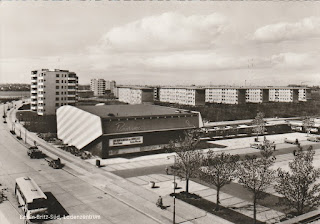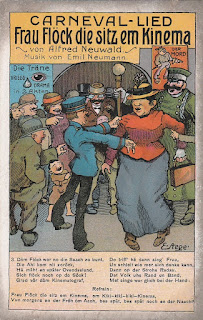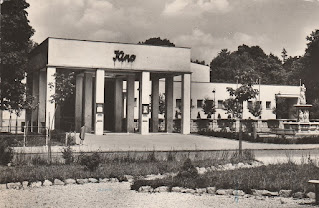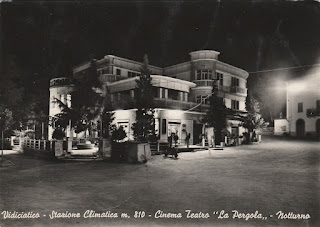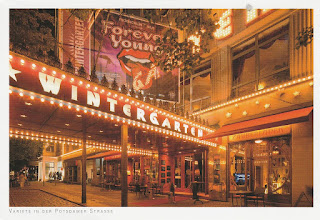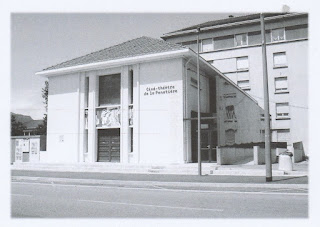The Panorama Filmtheater was built in 1958/1959 in Berlin-Britz, planned by the architect Gerhard Fritsche. From 1951 to 1961 he was involved in 17 cinema projects, above all in West-Berlin.
The free-standing building had a futuristic shape, the outer wall caught the eye with its bluish-white block stripes. At that time there was a row of shops in this cinema building.
The cinema had 893 seats with high-upholstered armchairs from Schröder & Henzelmann. With a Zeiss Ikon and Ernemann X projection apparatus and Zeiss Ikon amplifiers and loudspeakers, widescreen films could be shown in 1:2.35 and 1:2.55 in CinemaScope with one-channel optical sound and four-channel magnetic sound.
In 1980 the cinema was closed and a supermarket opened and is still in use. The building is a listed monument.
The photo was taken in 1961/62, the postcard was sent in 1968. The cinema advertises the movie Die Irrfahrten des Herkules / Goliath contro i giganti / Goliath against the Giants (Italy / Spain 1961, directed by Guido Malatesta. The movie came to West German cinemas on December 8, 1961. The German version was 8 minutes shorter than the original and the hero's name was Hercules and not Goliath.
